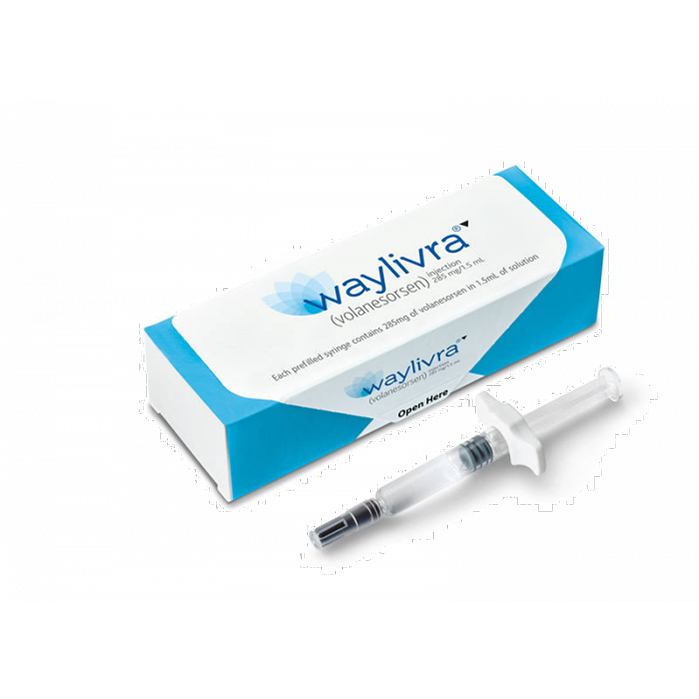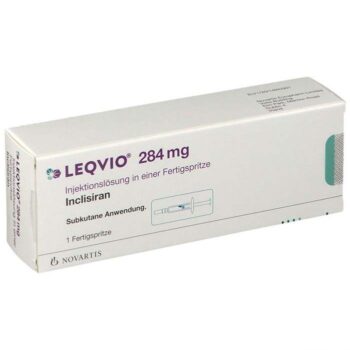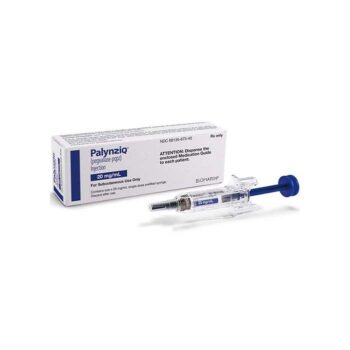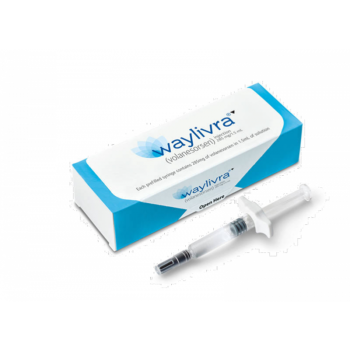Waylivra (volanesorsen) is a prescription medication used to treat adults with genetically confirmed familial chylomicronemia syndrome (FCS) and at high risk for pancreatitis, in whom response to diet and triglyceride lowering therapy has been inadequate. FCS is a rare genetic disorder that causes the body to produce too much of a type of fat called chylomicrons. Chylomicrons can build up in the blood and cause pancreatitis, a serious inflammation of the pancreas.
Waylivra is an antisense oligonucleotide, which is a type of synthetic DNA. It works by blocking the production of a protein called apolipoprotein C-III (apoC-III). ApoC-III is a protein that inhibits the breakdown of chylomicrons. By blocking the production of apoC-III, Waylivra helps to lower triglyceride levels in the blood and reduce the risk of pancreatitis.
Waylivra is given as an injection under the skin once a week. The recommended starting dose is 285 mg. The dose may be increased or decreased by your doctor based on your response to treatment.
How effective is Waylivra?
In clinical studies, Waylivra was shown to be effective in lowering triglyceride levels in patients with FCS. In one study, Waylivra reduced triglyceride levels by a median of 50% after 12 weeks of treatment.
What are the side effects of Waylivra?
The most common side effects of Waylivra are:
- Injection site reactions
- Headache
- Fatigue
- Nausea
- Diarrhea
- Constipation
- Abdominal pain
- Back pain
- Muscle pain
- Upper respiratory tract infection
Waylivra can also cause more serious side effects, such as:
- Liver problems
- Kidney problems
- Allergic reactions
- Blood clots
Who should not take Waylivra?
Waylivra should not be taken by people who are allergic to volanesorsen or any of the other ingredients in Waylivra. It should also not be taken by people with severe liver disease.
Important safety information
It is important to tell your doctor about all of the medications you are taking before starting Waylivra. Waylivra can interact with other drugs, such as blood thinners and statins.
Waylivra should be used with caution in people with liver disease or kidney disease.
Waylivra can cause serious side effects, such as liver problems and kidney problems. It is important to monitor your liver and kidney function regularly while taking Waylivra.
If you are considering taking Waylivra, talk to your doctor about the risks and benefits of the medication.











Reviews
There are no reviews yet.